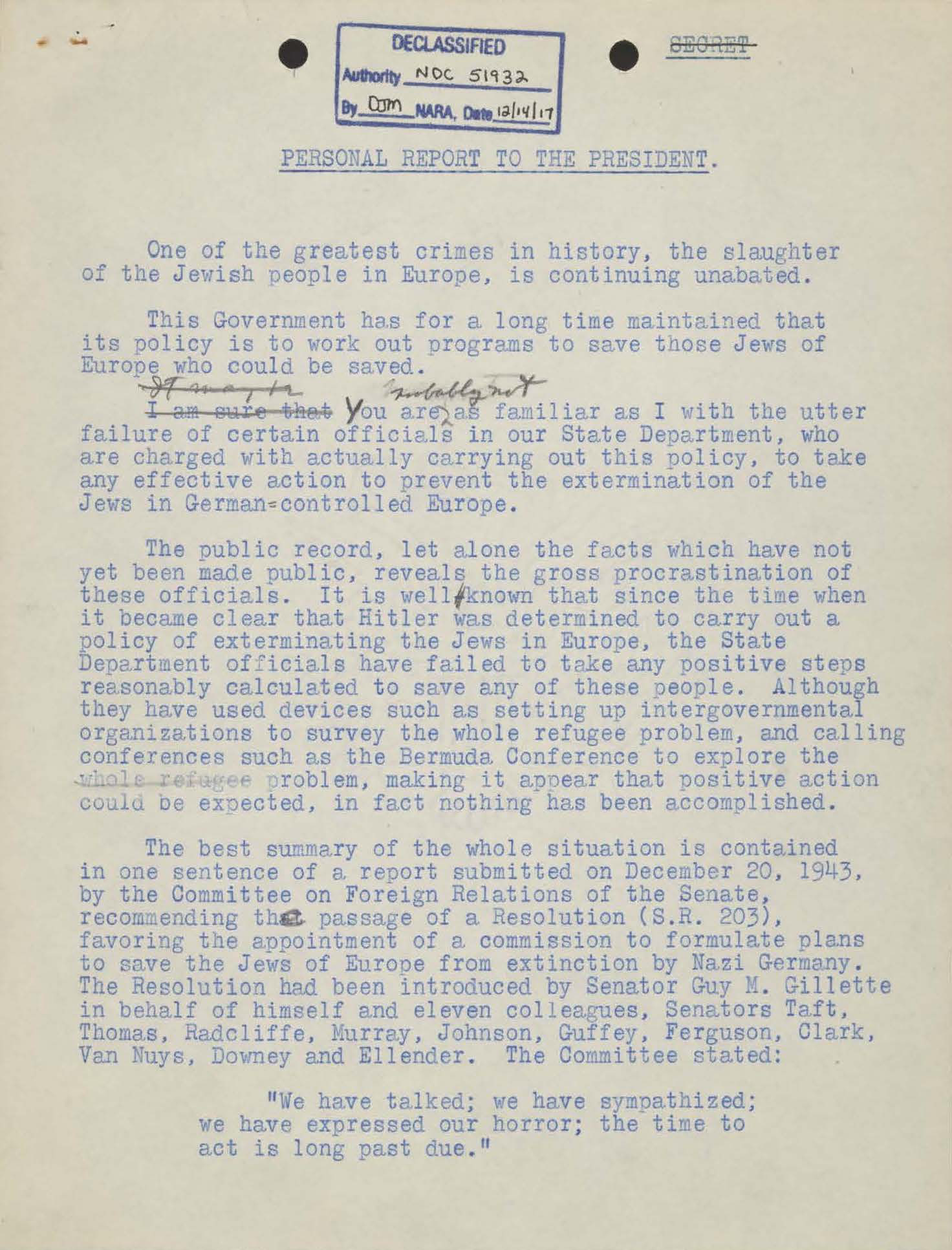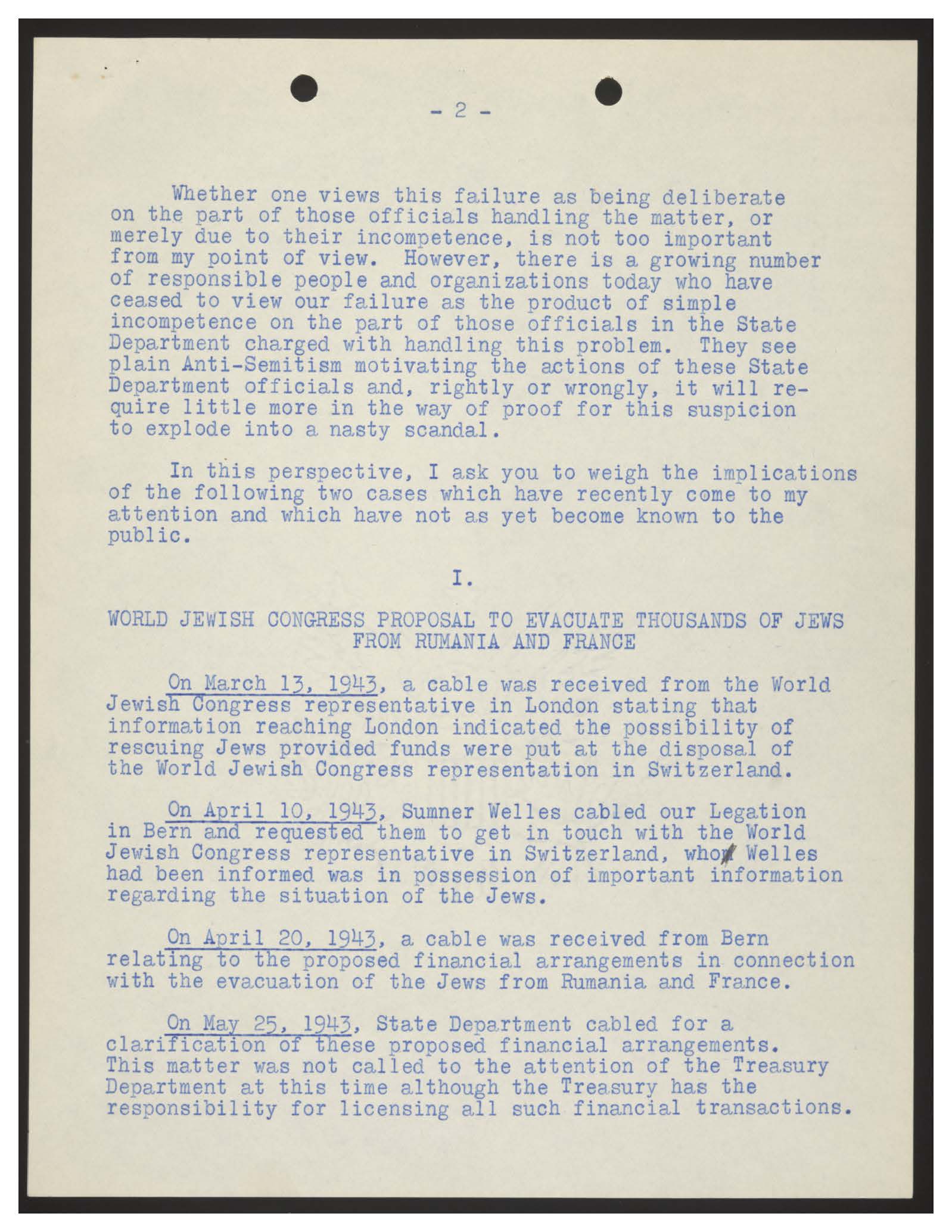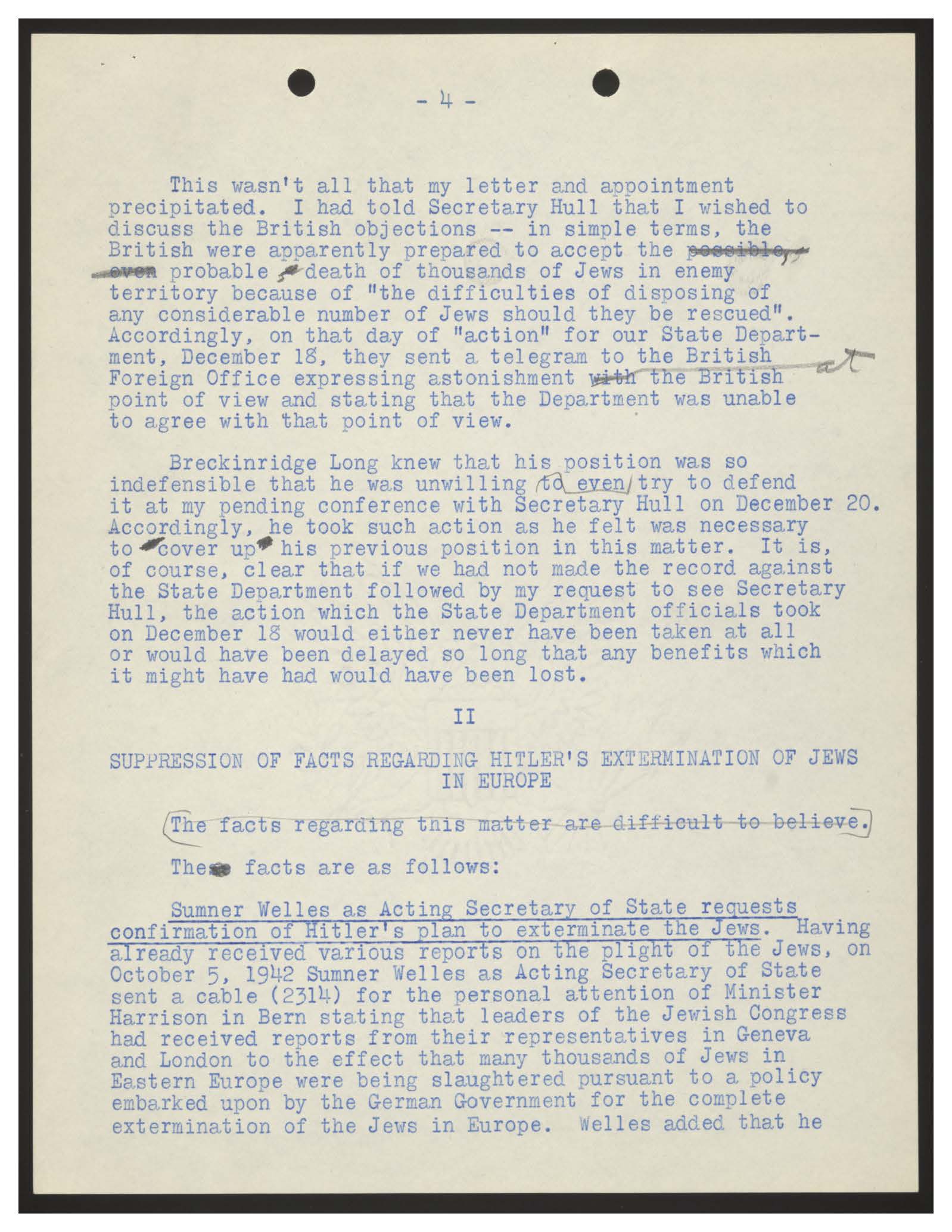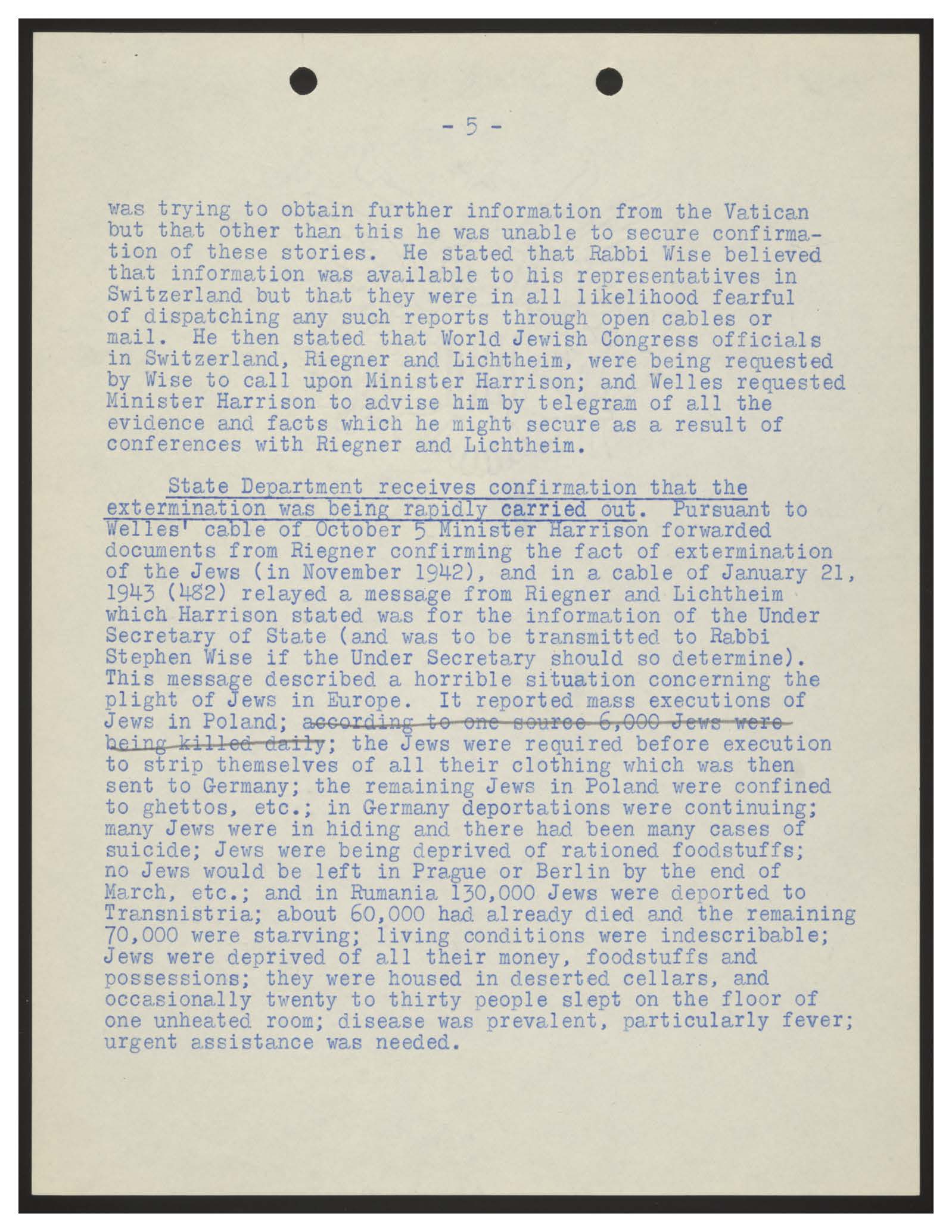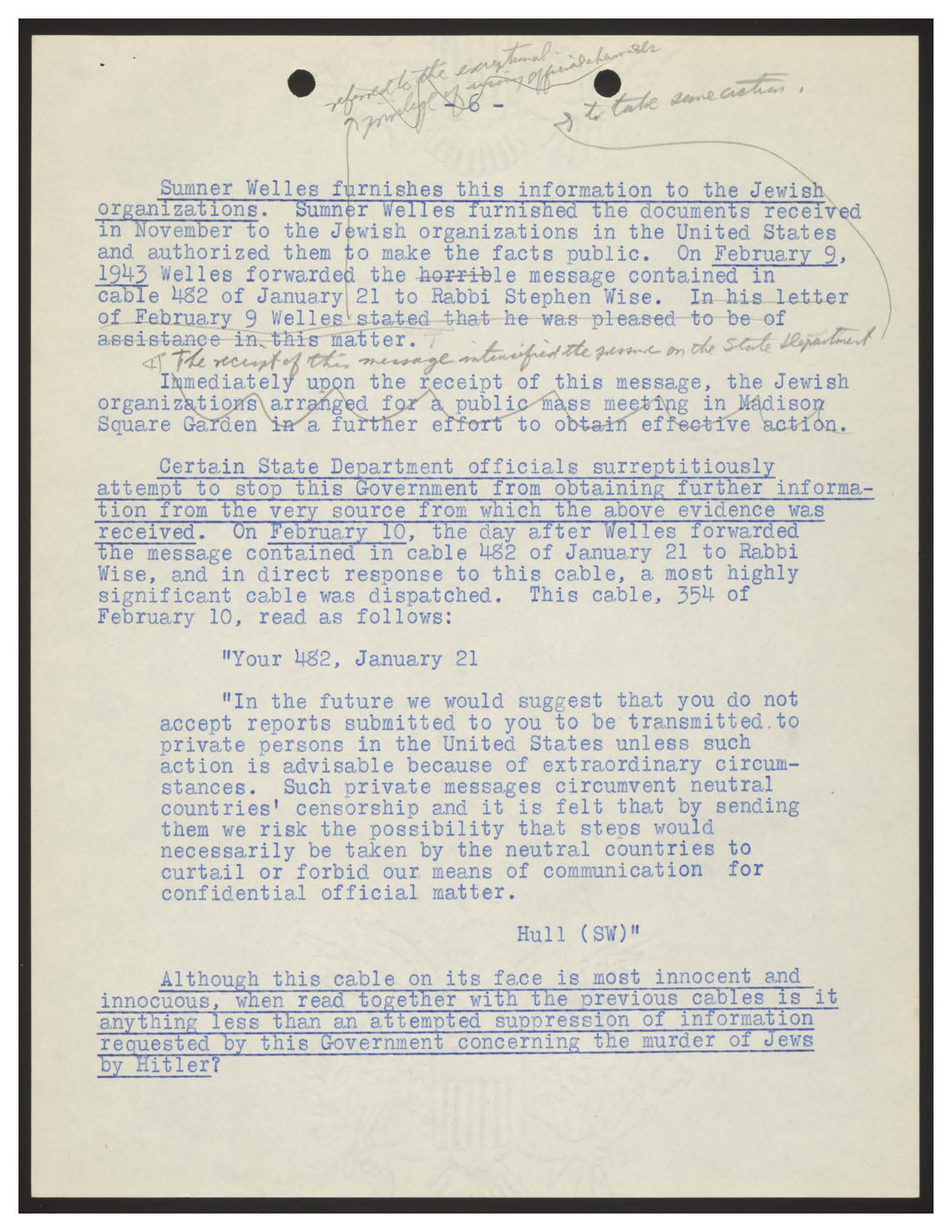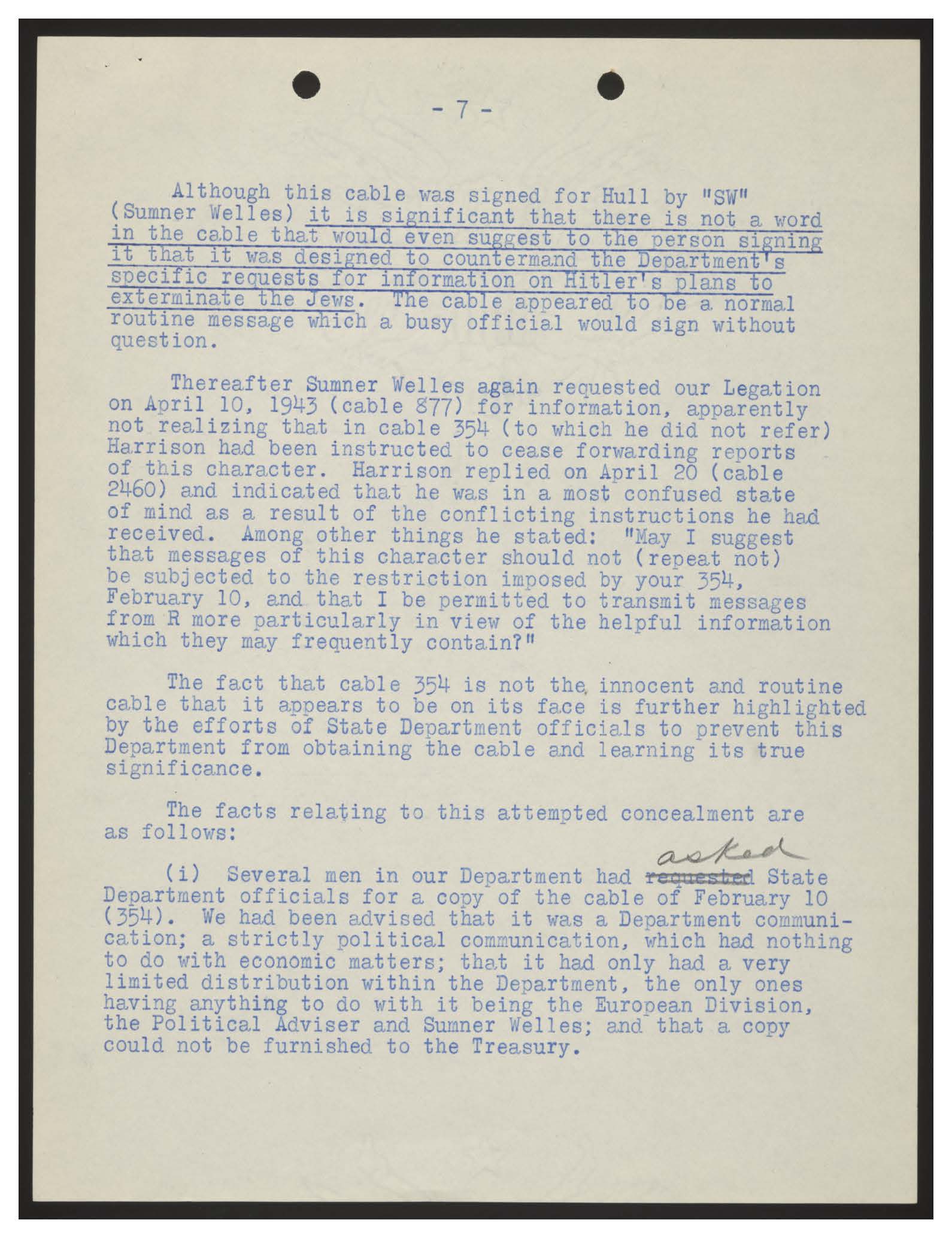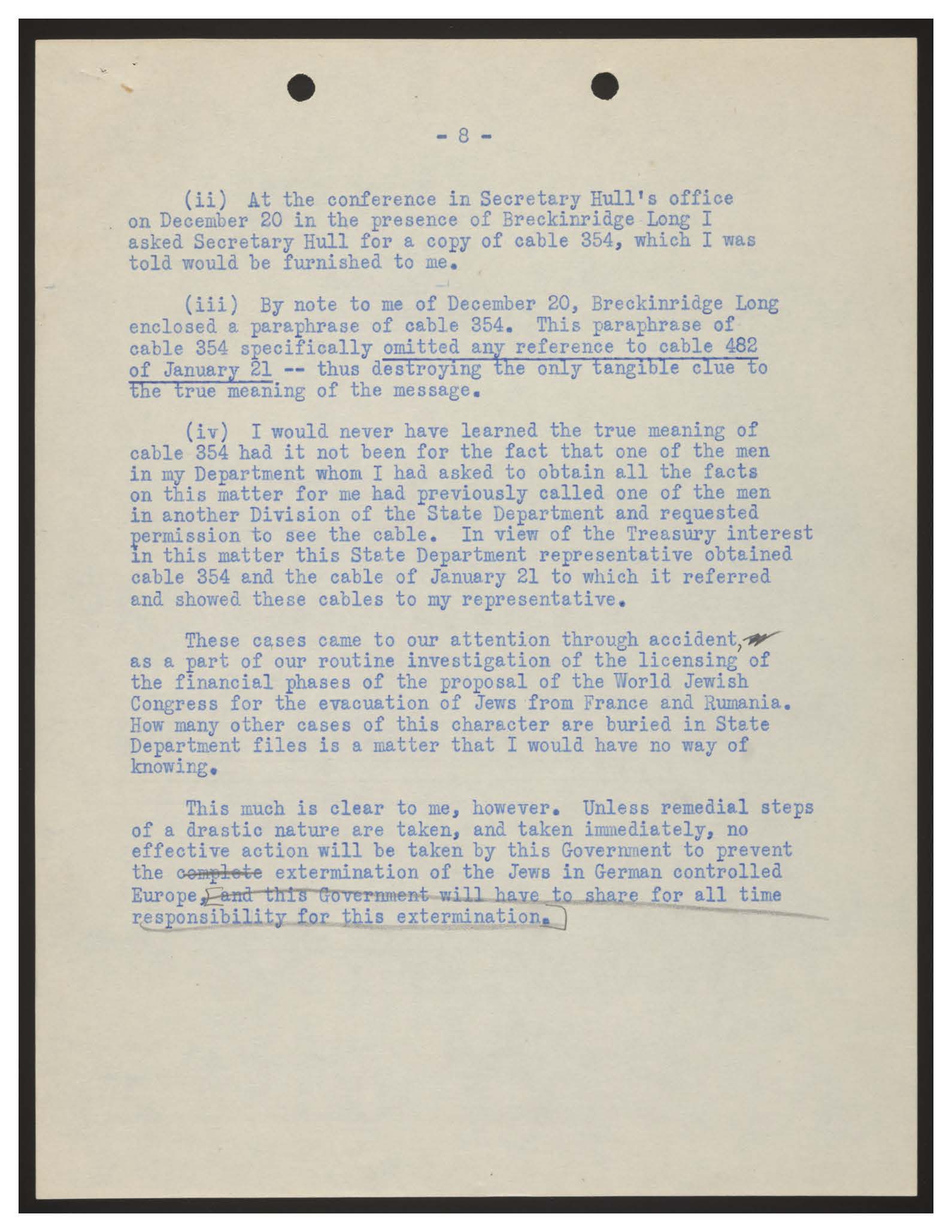Debating Immigration: Wagner-Rogers Bill
Long-Term Impact
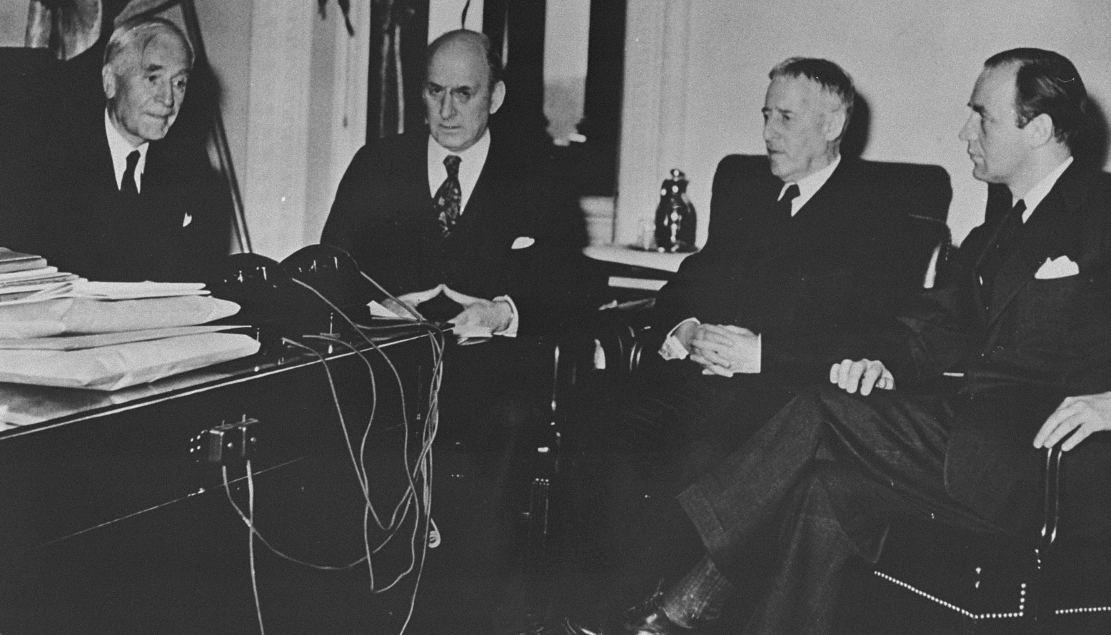
Third meeting of the Board of Directors of the War Refugee Board in the office of Secretary of State Cordell Hull, 1944, United States Holocaust Memorial Museum
"This [United States] Government has for a long time maintained that its policy is to work out programs to save those Jews of Europe who could be saved. I am convinced on the basis of the information which is available to me that certain officials in our State Department, which is charged with carrying out this policy, have been guilty not only of gross procrastination and willful failure to act, but even of willful attempts to prevent action from being taken to rescue Jews from Hitler. . . .
Unless remedial steps of a drastic nature are taken, and taken immediately, I am certain that no effective action will be taken by this Government to prevent the complete extermination of the Jews in German-controlled Europe, and that this Government will have to share for all time responsibility for this extermination."
~ A 1944 memo by Josiah DuBois and Randolph Paul
U.S. Treasury Department staff investigated the State Department’s delays and obstruction in sending relief into Europe to aid Jewish refugees. They discovered that State Department officials had deliberately suppressed reports about the murder of Jews. Secretary of the Treasury Henry Morgenthau Jr. agreed to present their findings to President Roosevelt.
January 1944, USHMM
As a result of Treasury’s efforts, Roosevelt signed Executive Order 9417 on January 22, 1944, establishing the War Refugee Board. It was charged with the rescue and relief of victims of Nazi oppression as long as it did not interfere with the war effort.
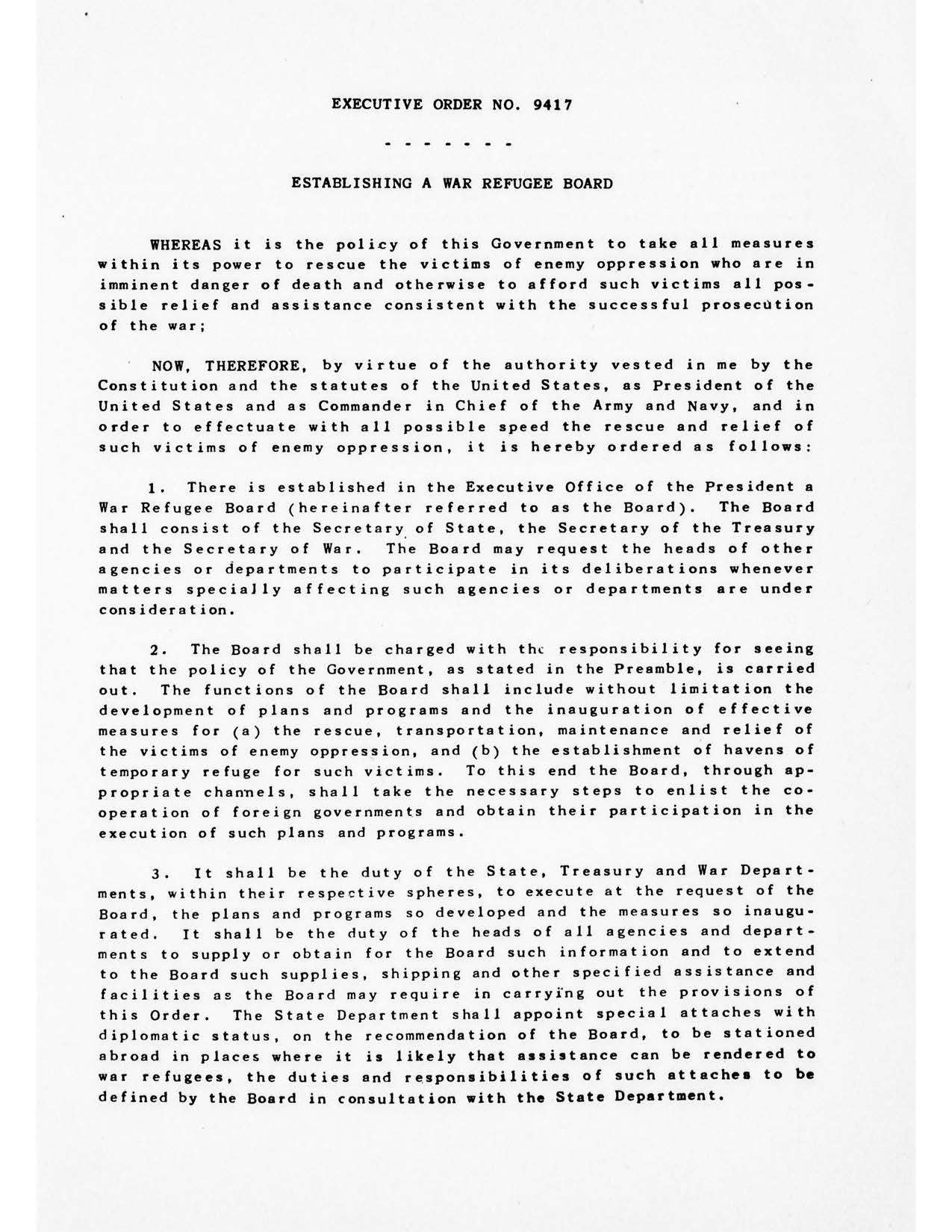
Executive Order Establishing a War Refugee Board, 1/22/1944, DocsTeach, National Archives
The War Refugee Board would be the only immigration diplomatic action taken by the American government in response to the Holocaust.

Newly arrived refugees receive food and drink at a picnic at Fort Ontario in Oswego, New York, 1944, United States Holocaust Memorial Museum
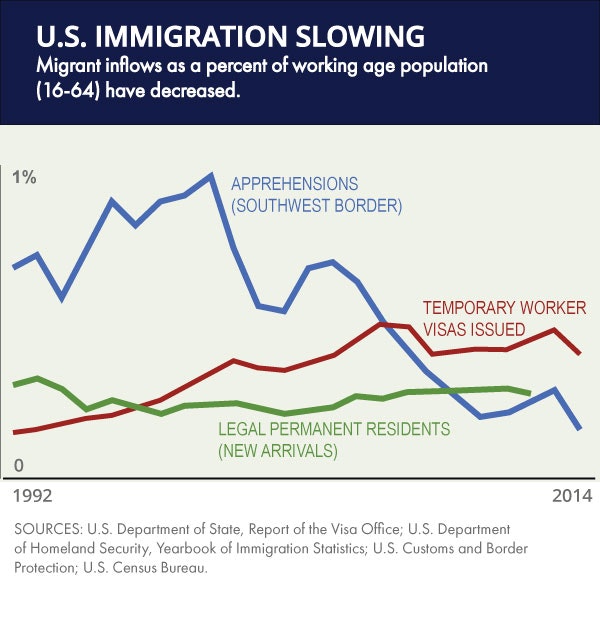
U.S. Immigration Slowing, The Catalyst
“Immigration is a net positive, even for those who don’t move, but the gains are not distributed equally. The next step for policymakers is to structure immigration reform to take advantage of immigration’s many benefits while mitigating the costs.”
~ Pia Orrenius, 2016; George W. Bush Institute
"The United States believes that all individuals should be able to have a safe, stable and dignified life within their own countries, while ensuring that asylum and other legal migration pathways remain available to those who need them."
~ FACT SHEET: The Biden Administration Blueprint for a Fair, Orderly and Humane Immigration System, July 27, 2021
The Wagner-Rogers Bill continues to affect immigration today by promoting continued, often heated debate about the status of immigrants.
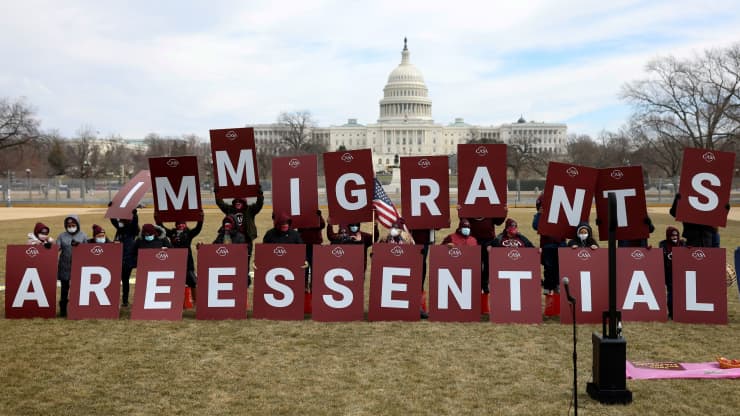
Demonstrators display a message along the National Mall during an immigrant essential workers rally near the U.S. Capitol in Washington, U.S., February 17, 2021
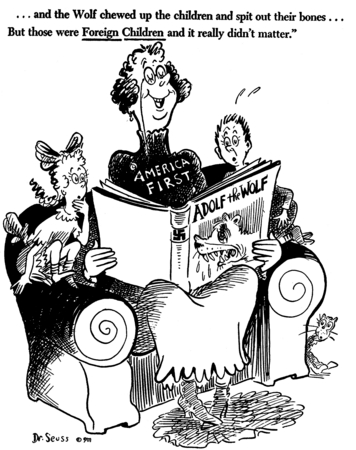
Dr. Seuss, PM Magazine, October 1, 1941, UC San Diego
In 1939 the lack of diplomatic action and productive debate resulted in Congress' failure to support the Child Refugee Bill leaving German citizens to suffer.
President Theodore Roosevelt is credited with saying: "In any moment of decision, the best thing you can do is the right thing, the next best thing is the wrong thing, and the worst thing you can do is nothing."
The implications of this diplomatic failure is a shameful spot in American history.
~ Theodore Roosevelt Center at Dickinson State University
